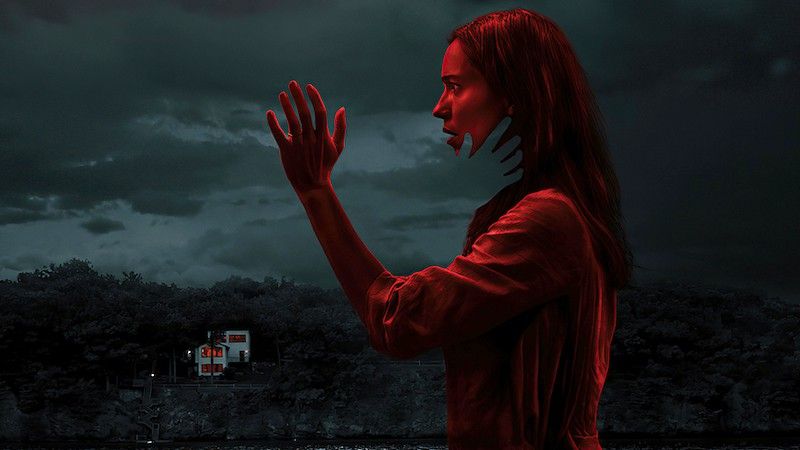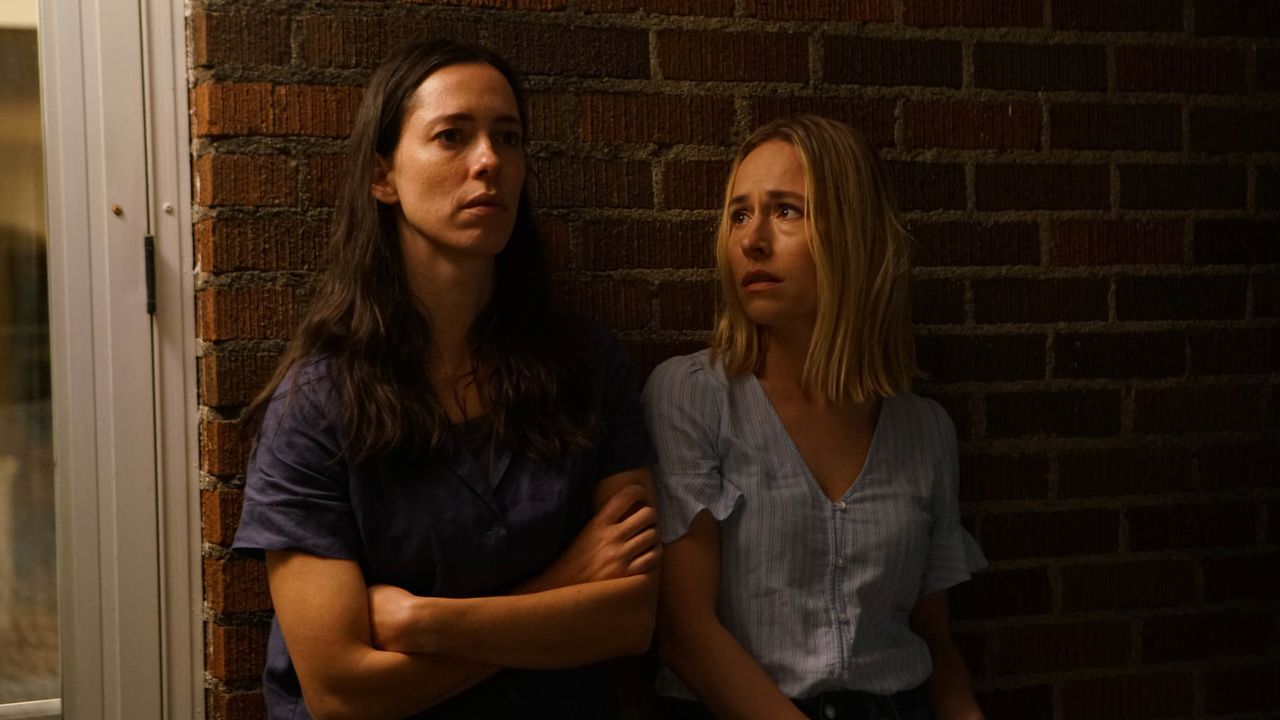I Watched The Night House!

About a decade ago, I was writing movie reviews for the site Tiny Mix Tapes. I wasn’t getting paid, but I wanted experience and to get some bylines out there. Plus, I got to see a bunch of movies for free I wouldn’t have seen otherwise. We had to assign ratings on a five-star scale, and I quickly realized my least favorite, and all too common designation was two-and-a-half stars (when doubled, a 5 out of 10). Three stars meant it was a minor or imperfect triumph you’d still go to bat for. Two stars meant it wasn’t atrocious, but you couldn’t recommend bothering to see it. Splitting the difference meant you found too much quality to pan, but not enough to celebrate. And when you’re writing reviews because you find creative works themselves inspiring, excited to examine and explicate your likes and dislikes, it can be a joyless trudge to pull paragraphs out of your “eh.”
The Night House, a 2020 Sundance festival film, newly streaming on HBO Max, was very much a two-and-a-half star experience. The trailer promised Rebecca Hall dealing with a creepy-ass jump-scare mystery involving her late husband, and I got that. And it’s almost impressive for that not to be enough.
Hall first made my radar holding her own against Ben Affleck in The Town, her assistant bank manager charismatically alert enough to dignify romantically upending Ben's criminal routine. Having made hay with this potentially thankless role, Hollywood gave her even more thankless roles in Iron Man 3 and Transcendence. But after watching her play a lonely but determined TV news reporter careening towards for a meltdown in 2016’s Christine, I knew I’d check out any movie she led. Now a hailed director as well (I haven’t seen it, but Passing was filed under “robbed” by many during awards season), there’s an intellectual vitality and awareness to her acting that’s a joy to watch. Whether it’s a tongue poking through her cheek while surfing the net, or a dark glint of amused disbelief when someone challenges her, Hall’s characters usually aren’t just an open book, but a smart read.

That’s very much the case in The Night House, where her character Beth is visibly impatient with processing the trauma of her husband Owen’s sudden suicide (Owen is played by Archive 81's Evan Jonigkeit, in danger of being typecast as Handsome Mr. Secrets). As Beth's quick to admit, she was the “depressed” one, oblivious to any suffering on Owen's part. Discovering how little she knew about her perceived protector has her in agony, usually shown in thinly repressed contempt towards anyone who thinks their perspective or problems are worth her attention. Allowances are made for her friend Claire (Barry’s Sarah Goldberg) and neighbor Mel (Vondie Curtis-Hall), who radiate with deep affection and concern for her. Vivid dreams and hallucinations turn sinister and demanding, prodded by evidence that he was indulging in occult study and spying on women who looked like her.
At this point we enter spoiler city, but of a necessarily vague kind, because the movie itself is disappointingly vague. Owen was definitely up to some dark, murderous shit, but it’s unclear whether he was dealing with literal demons or metaphorical ones. This may have a point. For Beth, burdened by a near-death experience in high school, her relationship with trauma and suppressed memory may as well be tactile. She’s not sure whether her experience is supernatural, so why should we be? But director David Bruckner (a contributor to the excellent horror anthologies The Signal, V/H/S, and Southbound) lays on the violent supernatural effects so heavily it’s hard to be sure whether we’re seeing a delusional reaction to learning a life partner’s delusions, or if we’re in Annabelle territory, an actual boogey-man wrecking a young couple’s life in upstate New York.
This kind of metaphorical horror is so hot right now, thanks to arthouse successes like The Babadook and Hereditary. But the effects in The Night House distract from, rather than deepen our understanding of Owen and Beth, both as a couple and as individuals. The film neither achieves the nasty wit of an Ari Aster movie, heightening a chronicle of personal pain with surreal touches, nor the popcorn pleasures of a James Wan movie where nice people deal with mean ghosts. Metaphorical horror is a tricky thing to pull off, where the humanity of the characters must be respected while putting them through a hellish wringer. If the message isn’t acute, the result can seem offensively pretentious. The Night House doesn’t fail that grandly. Its tricks and twists don’t fully overwhelm its excellent, emotive cast. But I can’t say it succeeds either. The dreaded “eh,” forever haunting those who dare to give takes.